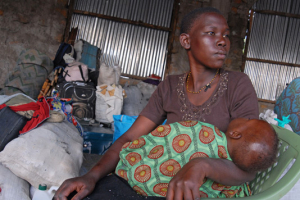Media interest may have waned but the needs facing many of the Kenyan refugees who fled to Uganda to escape post-election violence are still great, according to The Salvation Army’s International Emergency Services team.
Many refugees have decided to remain in Uganda and more families are still crossing the border to find refuge, reported the team, based in the border town of Tororo, Uganda.
At the height of the crisis, as many as 2,000 people were being sheltered at a refugee transit camp, but many others were taken in by local Ugandans who are still caring for them despite shortages in food and basic items.
The Salvation Army team and local Salvationists have worked to avert a humanitarian crisis and widespread hunger by providing basic food rations to the families hosting Kenyan refugees, around 12,500 people in total. The food rations were funded largely by financial assistance from the Netherlands, the United Kingdom and New Zealand.
In spite of the peace agreement and new coalition government, the challenges remain considerable and the Salvation Army emergency team reported that many of the refugees remain reluctant to return to their homes.
“It is so difficult to tell how long this crisis is going to continue. People seem to be coming and going across the border continually and the problem is not going away any time soon,” said Damaris Frick, The Salvation Army emergency team leader in Uganda.
“This is turning into a much longer-term support exercise than anyone thought it would,” added Major Cedric Hills, the International Emergency Services coordinator.
“Despite the very generous support from around the world, the funds available for this response are now almost exhausted,” he said.
“The team is working hard and providing tremendous support for very needy people but further resources are still needed.”
Ethnic violence across Kenya left 1,200 dead after President Mwai Kibaki’s disputed re-election last December, but the unrest persists. Just two days into the new coalition government’s existence, police shot dead two people when the dreaded Mungiki gang – Kenya’s equivalent to the mafia – took to the streets of the capital Nairobi to protest the beheading of its jailed leader’s wife last week.
The United Nations has sought $150 million in assistance to help the hundreds of thousands of Kenyans who have lost their homes and livelihoods in the violence. The latest top-up of funds adds to the nearly $40 million raised by the United Nations for Kenya in January.

















